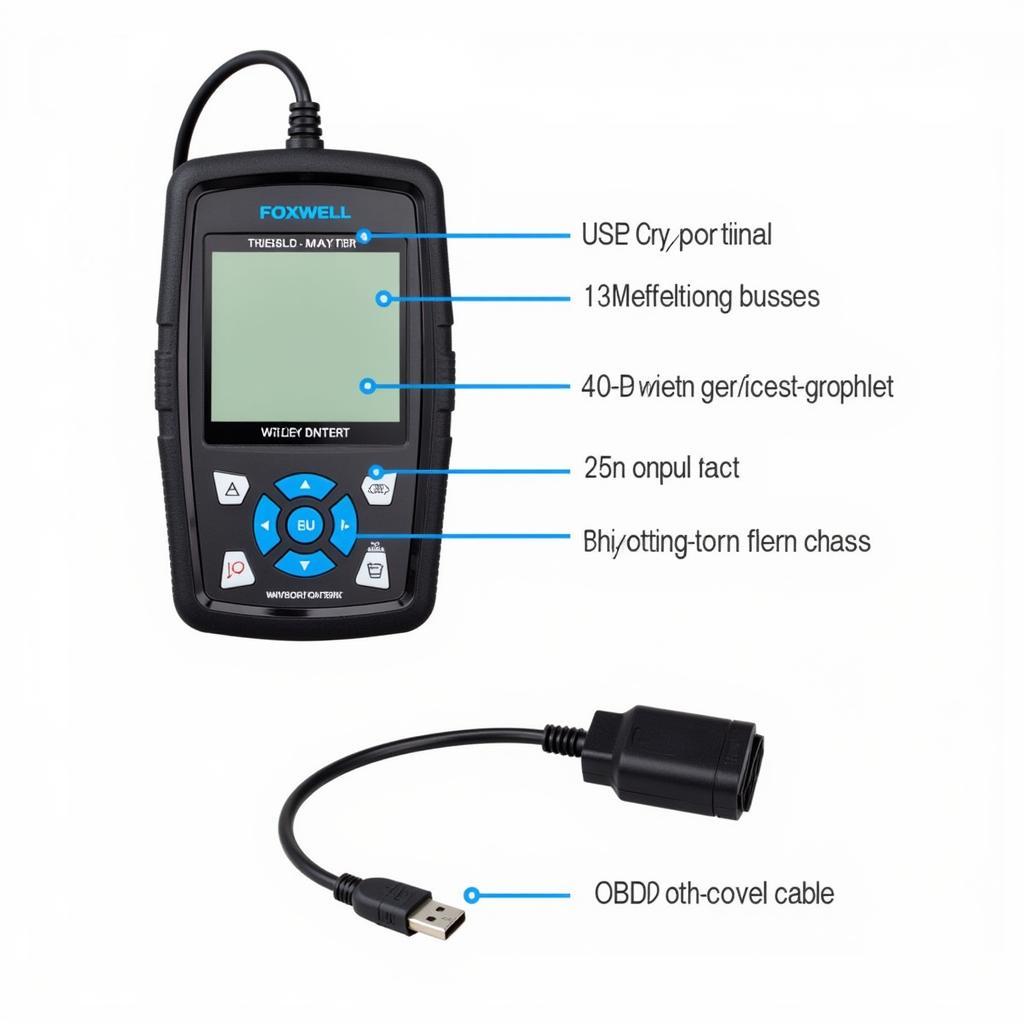Looking for top-notch automotive diagnostics and repair services in Lynn Foxwell, Maryland? Look no further! Whether you’re a car enthusiast, garage owner, or automotive technician, having the right diagnostic tools and expertise is crucial. This article delves into the world of automotive diagnostics, focusing on common problems, advanced solutions like those offered by Launch Tech USA, and how partnering with the right provider can save you time and money.
Understanding the Importance of Automotive Diagnostics
Modern vehicles are complex machines, relying heavily on electronics and software. When a problem arises, pinpointing the cause often requires more than just a visual inspection. This is where automotive diagnostics come in.
[image-1|automotive-diagnostic-tools|Automotive Diagnostic Tools|A close-up shot of various automotive diagnostic tools, including a scan tool plugged into a car’s OBD-II port, a multimeter, and a digital oscilloscope. The image highlights the sophisticated technology used in modern car repair.]
Automotive diagnostics involve using specialized equipment to communicate with your car’s computer system, retrieve diagnostic trouble codes (DTCs), and analyze various system parameters. This process helps identify issues with the engine, transmission, brakes, emissions system, and more.
Common Automotive Problems Solved with Diagnostics
A wide array of automotive problems can be diagnosed and often resolved using advanced diagnostic tools:
- Check Engine Light: One of the most common reasons drivers seek diagnostics is a glowing check engine light. This light can indicate anything from a loose gas cap to a serious engine problem.
- Transmission Issues: Slipping gears, rough shifting, and delayed engagement are all signs of potential transmission problems. Diagnostic tools can pinpoint the cause and prevent further damage.
- ABS and Airbag Faults: Safety systems like ABS and airbags are critical. Diagnostic tools can identify faulty sensors or modules, ensuring these systems function correctly.
- Electrical Problems: From faulty alternators to complex wiring issues, electrical problems can be difficult to diagnose without the right equipment.
Choosing the Right Automotive Diagnostic Tools
The market offers a range of diagnostic tools, from basic code readers to professional-grade scan tools.
Basic Code Readers:
These affordable tools are suitable for reading and clearing basic DTCs. They are a good option for car owners who want to understand basic issues.
Professional-Grade Scan Tools:
For garages and professional technicians, investing in a professional-grade scan tool like those offered by Launch Tech USA is essential. These tools provide:
- Comprehensive System Coverage: They can communicate with all vehicle modules, including engine, transmission, ABS, airbags, and more.
- Advanced Functions: Perform tasks like bi-directional control, coding, adaptations, and special functions specific to certain vehicle makes.
- Real-Time Data: Display live data streams from various sensors, allowing technicians to monitor system performance in real time.
- Technical Support and Updates: Reputable brands offer ongoing technical support and software updates to ensure compatibility with the latest vehicle models.
[image-2|launch-tech-usa-scan-tool|Launch Tech USA Scan Tool|A mechanic uses a Launch Tech USA scan tool to diagnose a car’s engine problem. The image focuses on the user-friendly interface and the detailed information displayed on the screen.]
“Investing in a high-quality scan tool is non-negotiable for our garage,” says John Miller, a seasoned mechanic with over 20 years of experience. “It saves us countless hours of diagnosis time and helps us provide faster, more accurate repairs to our customers.”
The Benefits of Accurate Diagnostics
Accurate automotive diagnostics offer numerous benefits:
- Faster Repairs: By quickly identifying the root cause of a problem, diagnostics eliminate guesswork and speed up the repair process.
- Cost Savings: Accurate diagnosis prevents unnecessary part replacements, saving you money in the long run.
- Improved Safety: Ensuring the proper functioning of critical safety systems through diagnostics enhances vehicle safety.
- Increased Customer Satisfaction: For garages, providing efficient and accurate diagnostics leads to higher customer satisfaction and loyalty.
Lynn Foxwell Maryland: Where to Find Expert Automotive Solutions
Finding a reliable provider of automotive diagnostic tools and services in Lynn Foxwell, Maryland, is easy with ScanToolUS. As a leading distributor of Launch Tech USA products, ScanToolUS offers a comprehensive range of professional-grade diagnostic solutions, expert advice, and exceptional customer support.
Contact ScanToolUS today for all your automotive diagnostic needs!
Phone: +1 (641) 206-8880
Office: 1615 S Laramie Ave, Cicero, IL 60804, USA
FAQs about Automotive Diagnostics:
1. How often should I get my car diagnosed?
It’s generally recommended to have your car’s diagnostic system checked at least once a year or as part of your regular maintenance schedule.
2. Can I diagnose car problems myself?
While basic code readers are available for DIY enthusiasts, complex issues often require professional-grade equipment and expertise.
3. What is the difference between OBD-I and OBD-II?
OBD-II (On-Board Diagnostics II) is a standardized system found in most cars manufactured after 1996. It provides more comprehensive diagnostic information compared to the older OBD-I system.
4. What should I do if the check engine light comes on?
It’s crucial to get your car diagnosed as soon as possible when the check engine light illuminates. Ignoring it could lead to further damage and costly repairs.
5. How much does automotive diagnostics cost?
The cost of automotive diagnostics can vary depending on the complexity of the problem and the hourly rate of the repair shop.
6. Can automotive diagnostics identify problems with the air conditioning system?
Yes, modern diagnostic tools can access and retrieve trouble codes from the air conditioning system, helping diagnose issues like faulty compressors, sensors, or refrigerant leaks.

